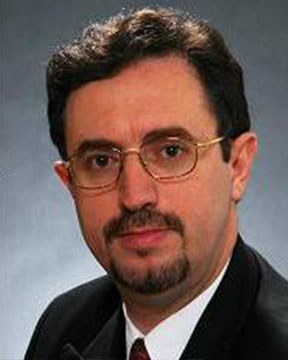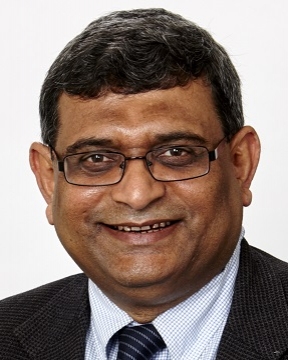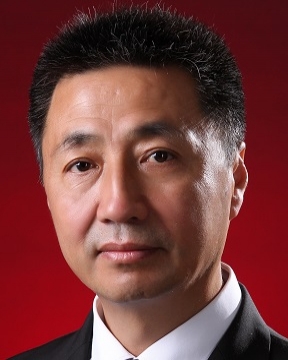
Intl. Symp. on Corrosion for Sustainable Development

Bio | CV | Publications
This symposium is in honor of the work and achievements of Digby D. Macdonald, famous for his contributions in the field of nuclear engineering. Currently, Dr. Macdonald is a Professor in Residence in the Department of Nuclear Engineering and Materials Science and Engineering at the University of California at Berkeley. His 55-year long career began after graduating with his PhD in Chemistry from the University of Calgary, Canada, in 1969. His work began by addressing the water chemistry and activity transport issue being experienced in the primary coolant circuit of the CANDU (Canadian Natural Uranium fueled, Deuterium Moderated) prototype reactor at Douglass Point in Ontario, Canada. In this position, he developed the concept of redox control in the primary coolant circuits that enabled the displacement of the corrosion potentials of the coolant structural materials to sufficiently negative values, so they were no longer in danger of catastrophic localized corrosion and failure occurring in the operation of a water-cooled, nuclear power reactor. An early application of this principle was “redox shocking/cycling” of the primary coolant in the Douglass Point CANDU to remove radioactive CRUD (Chalk River Unidentified Deposit) that had been released from the reactor core after being neutron-activated and deposited in the boilers of the reactor, resulting in unacceptable radiation fields that threatened the entire CANDU project. This work earned him the 1993 W.B. Lewis Memorial Lecture by Atomic Energy of Canada, Ltd., “in recognition of [his] contributions to the development of nuclear power in the service of mankind”. He was the sixth recipient of this honor, three of the previous recipients being Nobel Laureates. Redox control is now practiced in water-cooled reactors worldwide.
He also specializes in the growth and point defect structures of thin oxide films on metal surfaces and developed the Point Defect Model (PDM) for describing the physico-electrochemistry of such systems. The PDM accounts for the fact that we can have a metals-based civilization that is based on the reactive metals (Al, Fe, Cr, Ni, Ti, etc), for which he was nominated for the 2011 Nobel Prize in Chemistry by a nominator at the Indian Institute of Science, Bangalore, India. He has also developed the modern theory of stress corrosion cracking, corrosion fatigue, and pitting corrosion in terms of the Coupled Environment Models. One of his major activities has been the modeling and the deterministic prediction of the electrochemical and corrosion properties of structural materials in the coolant circuits of operating, water-cooled nuclear power reactors and recently modeled for the US Department of Energy (USDOE) the radiolysis of water and the resulting electrochemistry of the coolant circuits of the ITER that is currently being built in Cadarache, France. ITER is the World’s first fusion technology demonstration reactor. He has also contributed to developing the science basis for the disposal of High-Level Nuclear Waste in the US (Yucca Mountain), Belgian, and Swedish programs and has predicted the integrated corrosion damage for periods extending 1 million years into the future.
In addition, Dr. Macdonald has made numerous contributions to science at the fundamental level, including modification of Butler-Volmer theory for the kinetics of charge transfer reaction of passivated metal surfaces, which are covered with nanometer thick, passive (oxide) films by allowing for the quantum mechanical tunneling of charge carriers (electrons and holes) from the metal to the redox reaction center at the passive film/solution interface. As a result of this innovation, it is now only necessary to specify the kinetic parameters for the reaction (exchange current density and transfer coefficients) on the (often hypothetical) bare surface and correct the parameters for the presence of the passive film, which is readily done using the PDM.
Dr. Macdonald has published about 1000 papers in peer-reviewed journals and conference proceedings and has received many professional, national, and international awards for his work. He is also a foreign member of the Royal Society of Canada and the Royal Society of New Zealand and is a Member of the EU Academy of Sciences.
ROUND TABLE DISCUSSIONS
A round table discussion open to everyone interested will be organized at a specific date and time during the symposium. It will be a platform for high level representatives of various industries, technologies, and academic disciplines to freely discuss and debate all topics of this symposium, and identify positive and efficient pathways towards sustainability in industrial practices, technologies, and research.
You are cordially invited to actively participate in this symposium by submitting and presenting a paper, or by attending the round table. We look forward to meeting you in Phuket, November 2022.





